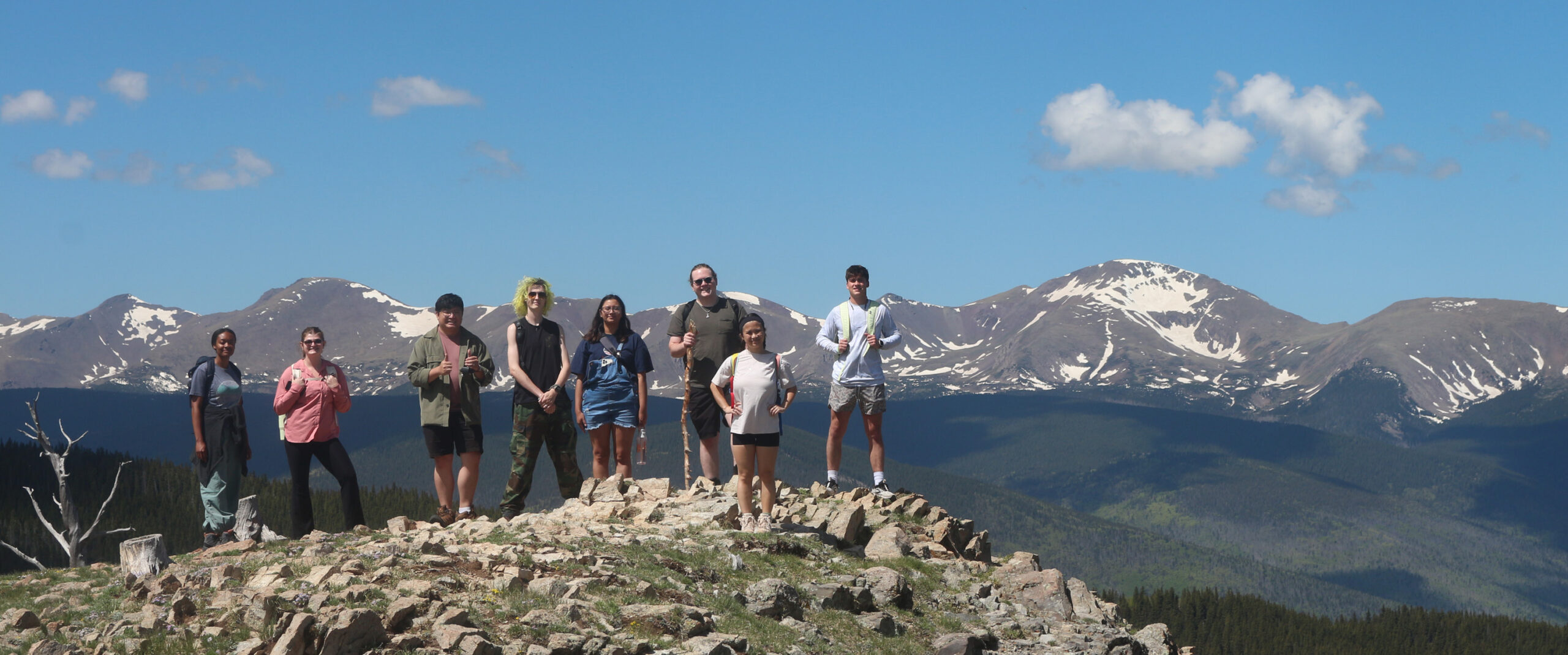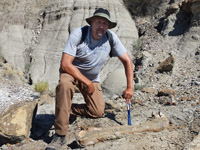Department of Geosciences
ICP-MS Laboratory
The MTSU Inductively Coupled Plasma Mass Spectrometry (ICP-MS) lab was funded by a $122,000 grant from the National Science Foundation. The lab provides analytical training and research opportunities for undergraduate geoscience majors. The lab also is used to reinforce course learning objectives in MTSU undergraduate mineralogy, petrology and geochemistry courses. Undergraduates enrolled in introductory Earth science and introductory geology courses also use the lab to complete exercises addressing the scientific method and drinking water quality.
The ICP-MS lab is available for use by professors and students from all MTSU science departments, as well as non-MTSU users. Along with the Department of Geoscience X-ray fluorescence lab, the ICP-MS lab offers a wide range of analytical capabilities. Both labs are staffed by Dep. of Geoscience faculty and students. All analytical expenses must be covered by each user. For more information on user fees, please contact Dr. Warner Cribb.
What is ICPMS?
ICP-MS is an anlytical method capable of rapidly measuring the concentrations of almost all chemical elements in any geologic sample. ICPMS accomplishes this by counting the number of ions at a certain mass of the element. Standards are analyzed to generate a calibration curve and the signals from unknown samples are compared against the calibration curve to determine the concentration of each metal in the sample. ICP-MS can measure as many as 35 elements in a single sample in as little as three minutes. Detection limits for almost all isotopes are at the parts-per-billion level.
The ICP-MS consists of the following parts:
- Sample introduction system – consists of the peristaltic pump, nebulizer, and spray chamber and provides the means of getting samples into the instrument
- ICP torch – generates the plasma which serves as the ion source of the ICP-MS, converting the analyte atoms to ions
- Interface – links the atmospheric pressure ICP ion source and the high vacuum mass spectrometer
- Vacuum system – provides high vacuum for ion optics, quadrupole, and detector
- Lens – focuses ions into a beam for transmission into the quadrupole
- Quadrupole – acts as a mass filter to sort ions by their mass to- charge ratio (m/z)
- Detector – counts individual ions passing through the quadrupole data handling and system
- Controller – controls all aspects of instrument control and data handling to obtain final concentration results
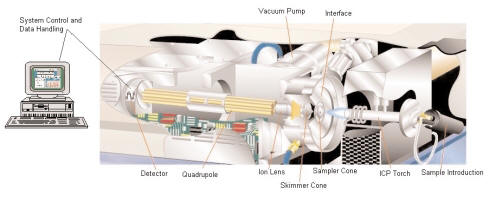
Diagram courtesy of PerkinElmer
Laboratory Facilities
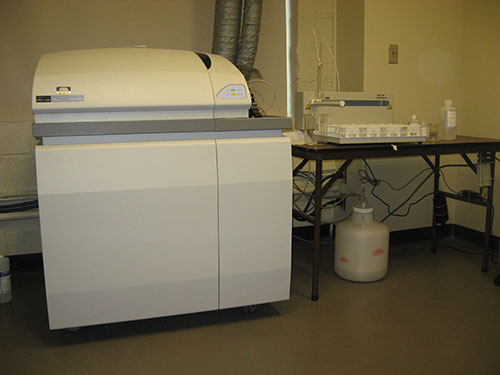
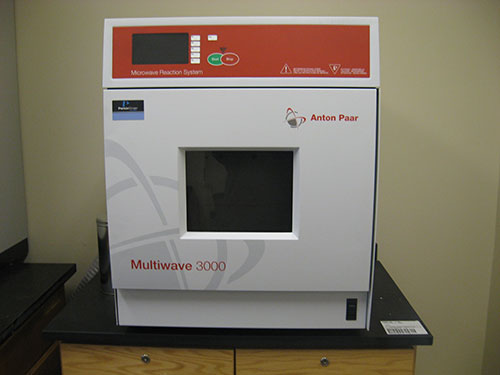
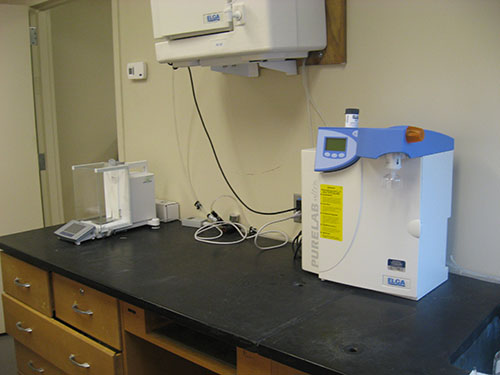
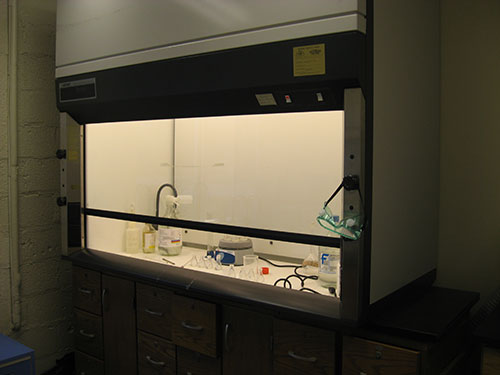
Current Student Projects involving ICP-MS
- Development of new ICPMS sample preparation method for digestion of lithium-borate glass in aqua-regia acid
- Investigation of toxic metal concentrations in Tennessee Copper Basin stream sediments
- Mechanisms of formation and chemical evolution of magmas in the central and northern Oregon Cascade Range
- Distributions, Concentrations, and Transport Processes of Toxic Metals Released from TVA Coal-Ash Surface Impoundments into Public Waterways and River Sediments
Follow Us!
Faculty Spotlight
Alan Brown:
"I did not start out in college thinking I would be a Geology major. In fact, I had little idea what a Geologist even was. It was my first class in Geology that ignited my love of Geology and Paleontology. I had a strong interest in Paleontology while in school but decided to focus instead on environmental geology because the job market was much better. After getting my Master’s degree I worked as an environmental consultant for 7 years.
Then, in 2005, I was hired as an instructor at Middle Tennessee State University. Once I started at MTSU my interest in Paleontology was rekindled. In the summer of 2009, I was invited to go on a dinosaur dig in Montana and I have returned to Montana to dig up dinosaurs every summer since. I volunteered at two museums in the area but they both closed. I then got together with a small group, and we decided to start a new museum. This museum is Earth Experience the Middle Tennessee Museum of Natural History in Murfreesboro, Tennessee, which opened in 2014. It is my passion and takes almost all my free time."
Contact Us
Mail address:
MTSU - Dept. of Geosciences
MTSU PO Box 9
Davis Science Building 241
Murfreesboro, TN 37132
Dr. Todd Moore, Department Chair
615-898-2379
Karen Wolfe, Executive Aide
615-898-2726
